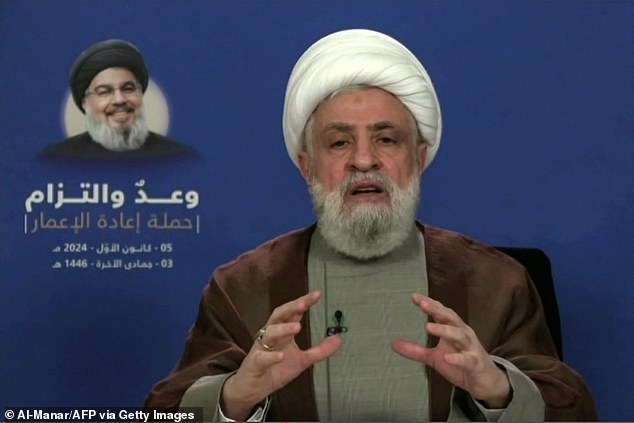The head of Hezbollah has admitted that the terrorist group has lost a key military supply line following the fall of murderous dictator Bashar al-Assad.
Assad’s fall on December 8 has been celebrated across Syria, which has been deeply repressed by the now-ousted president’s family since the 1970s.
But his allies are furious that their cultivated relations with the regime were destroyed by the umbrella coalition, led by Hayat Tahrir al-Sham (HTS), in a lightning offensive that saw Assad’s forces overwhelmed in less than two weeks.
Hezbollah leader Naim Qassem, whose group supported Assad during more than a decade of conflict in that country, admitted in a televised speech that his terrorist group “lost a military supply line through Syria.”
And he added: “The resistance must adapt to the circumstances.”
Qassem said he hoped whoever leads Syria next will help them, adding: “A new regime could come and this route could return to normal, and we could look for other ways.”
Hezbollah began intervening in Syria in 2013 to help fight opposition forces that tried to overthrow it during the country’s bitter civil war.
Last week, as Assad’s forces fled their posts, Hezbollah officers were sent to supervise the withdrawal of their own fighters from the country.
Hezbollah leader Naim Qassem (pictured) admitted in a televised speech that his terrorist group “lost a military supply line through Syria.”
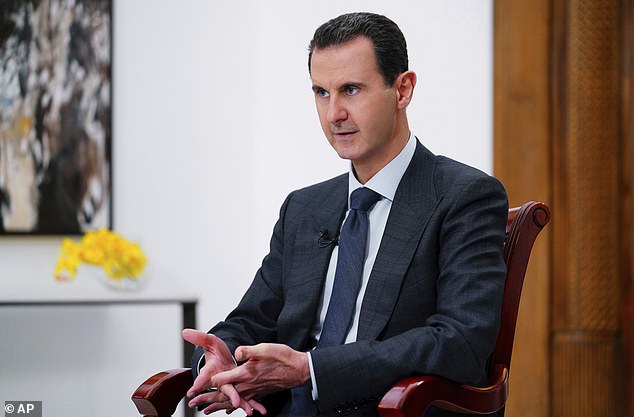
Bashar al-Assad (pictured) was overthrown earlier this month by a coalition of militias.
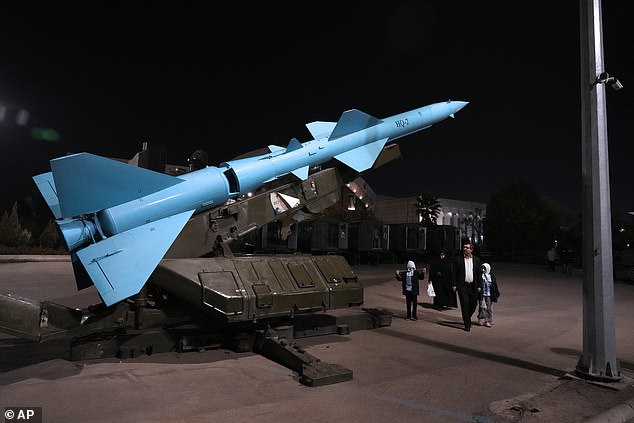
People walk past a domestically-made Iranian missile while visiting the Revolutionary Guard National Aerospace Park, outside Tehran, Iran, on November 15 this year.
The terrorist group maintained a supply line through Syria from Iran, passing weapons ranging from missiles to heavily subsidized fuel products for Hezbollah to use.
Analysts have said that while Assad’s fall would be a major setback for Hezbollah, it was not necessarily the end of Iran’s support for the terrorist group.
Michael Knights, an analyst at the Washington Institute, wrote in a blog post that Iran could still send support to Hezbollah through Iraq with the help of pro-Iran militias in the country, before passing through Central Syria, where few militias have their claims at stake. and then to Lebanon.
He added that Iran could also send maritime support to Syria’s Mediterranean coast.
Despite this, other Arab nations, along with the United States, the EU and Turkey, issued a joint statement calling for a peaceful transition to democracy, as well as the safe destruction of chemical weapons stockpiles used by Assad against his own people.
He also expressed full support for Syria’s territorial integrity.
A separate statement issued by Arab foreign ministers called for U.N.-supervised elections based on a new Syrian-approved constitution.
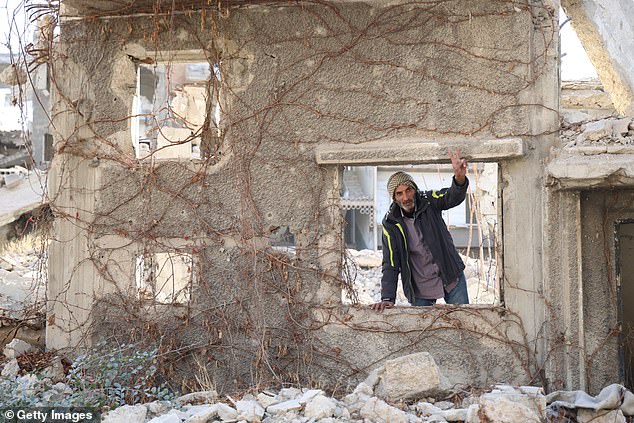
A man peers out of the window frame of a ruined building on December 14 in Jobar, Syria.

Children wave a Syrian independence-era flag in the town of al-Dana, near Sarmada, in northern Syria’s Idlib province, on December 13.
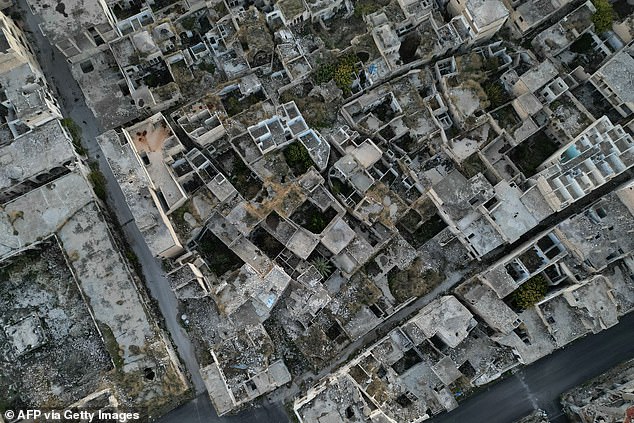
This aerial view shows a destroyed building in Maaret al-Numan in Syria’s northwestern Idlib province on December 14.
That statement also condemned Israel’s incursion into the buffer zone with Syria and adjacent sites over the past week as a “heinous occupation” and demanded the withdrawal of Israeli forces.
In a sign of improving relations with the transitional government, Turkey reopened its embassy in Syria on Saturday, becoming the first country to do so since the end of Bashar Assad’s government last weekend.
The Syrian insurgents who overthrew Assad had received vital help from Türkiye.
The Turkish flag was raised over the compound in Damascus for the first time since diplomatic relations were severed in 2012. The embassy suspended operations 12 years ago due to insecurity during the Syrian civil war.
Several countries maintained diplomatic relations with Assad’s government throughout the 13-year conflict, while others reopened their diplomatic missions in recent years as they sought to normalize relations.

